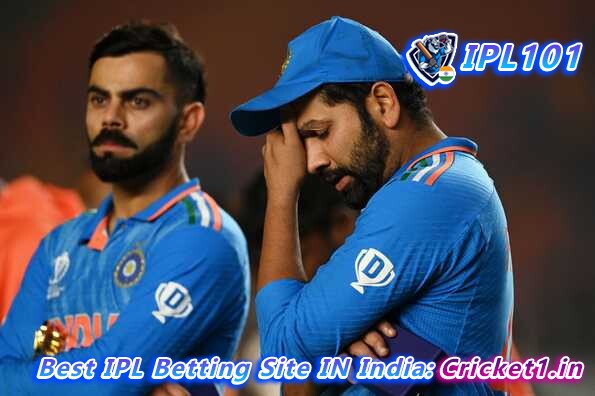
“We tried everything…” These were the words that echoed solemnly from India’s captain Rohit Sharma during the aftermath of a bitter defeat in the World Cup final. The Indian team, which had soared through the tournament with an unblemished record, met an abrupt end to their dream run as they succumbed to a six-wicket loss against a resilient Australian side.
Reflecting on the match, Rohit Sharma’s demeanor was a mix of disappointment and pride. The highs and lows of cricket were on full display, encapsulated in the bittersweet reality of making it to the final stretch only to fall short. “We were not good enough today,” admitted Rohit, with the poise of a leader grounded in reality. He quickly balanced his concession with an expression of pride in his team’s overall performance throughout the tournament, adding, “But again, I think I’m really proud of the team, how we played from game one. It just wasn’t our day.”
The grand finale was set in Ahmedabad on a pitch that proved to be a test of patience and technique. Electing to bat, India found themselves embattled on the slow and arid surface, a stark contrast to the conditions in which they had previously flourished. Despite the challenge, the men in blue looked to set a competitive total, aiming for a score that could put Australia under pressure.
India’s hopes were pinned on a critical partnership between KL Rahul and Virat Kohli during the middle overs, which had promised to lay the foundation for a final onslaught. Rohit recounted their strategy: “They were stitching a good partnership there and they just needed to bat as long as possible.” The duo was looking to push the total towards the 270-280 mark. However, the steady fall of wickets at crucial junctures impeded their progress, culminating in India being bowled out for 240 off the last ball of their innings.
Rohit conceded that an additional 20-30 runs could have significantly altered the dynamics of the game. While India’s partnership for the fourth wicket yielded 67 runs, Australia’s counterpart skillfully added 192 after their initial three wickets fell, exemplifying the importance of forging a substantial partnership in the middle overs – a decisive factor in the high-stakes encounter.
Despite taking early wickets and finding themselves in a position to potentially tilt the scales, Rohit lauded the commendable batting displayed by the Australian middle-order, particularly Travis Head and Marnus Labuschagne, who meticulously knit a match-winning partnership, dashing the hopes of the Indian contingent.
With the onset of dew, the pitch conditions seemed to have slightly favored the batting side under the lights, but Rohit, showing gracious sportsmanship, refused to use it as an alibi for the defeat. He revealed that India, too, had intentions of batting first to capitalize on the conditions. “We knew under the lights, it would be slightly better, but again, we don’t want to give that as an excuse,” he maintained.
As the Indian skipper faced the media, it was clear that he was dissecting the outcome with a sense of perspective, bearing the burden of a missed opportunity yet showing heartening support for his teammates’ efforts: “We tried everything we could from our side. But yeah, it wasn’t supposed to be.”
In a game where the inches matter and moments change destinies, India’s World Cup journey ended with a sigh—a testament to the game’s unpredictability and the thin line between success and shortfall. For Rohit Sharma and his men, the loss will be a poignant reminder of what could have been. Yet, in defeat, the Indian cricket team found a dignified resolve to stand tall, expressing their campaign’s pride and the quiet hope for conquests yet to come.

